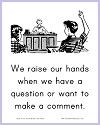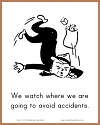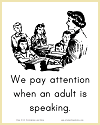Printable Classroom Signs |
www.studenthandouts.com > Classroom Organization > Classroom Signs |
 |
 |
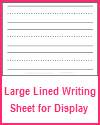 |
 |
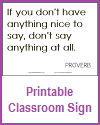 |
||||||
| Shhh! Testing in Progress | We do not eat in class. | Sheet of Large Dashed Handwriting Strips | We arrive to class on time. | If you don’t have anything nice to say, don’t say anything at all. |
 |
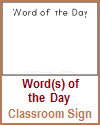 |
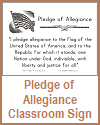 |
 |
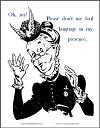 |
||||||
| Refer to the text! | Word(s) of the Day Sign in Singular or Plural | Pledge of Allegiance | Attention! Printable Pin Board Stationery | "Oh, my! Please don't use foul language in my presence." |
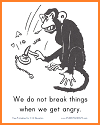 |
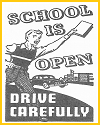 |
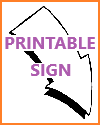 |
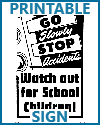 |
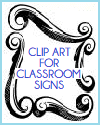 |
||||||
| We do not break things when we get angry. | School is open. Drive carefully! | Hollow Curved Arrow | Go slowly. Stop accidents. Watch out for school children. | Clip Art for Classroom Signs |
 |
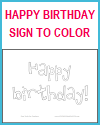 |
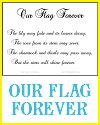 |
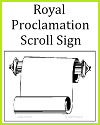 |
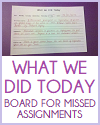 |
||||||
| DIY Hanging Monkeys Classroom/Name Banner | Happy Birthday Sign to Color | "Our Flag Forever" for Classroom Display | Royal Proclamation Scroll Sign | What We Did Today Board for Absent Students |
 |
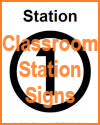 |
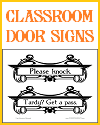 |
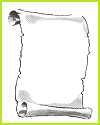 |
|||||||
| Organize Areas and Materials by Age | Printable Numbers 1-20 | Learning Station Signs to Print | Classroom Door Signs for Visitors and Tardy Kids | Medieval Scroll Printable |
 |
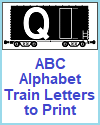 |
 |
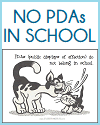 |
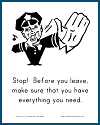 |
||||||
| Blank Ancient Scroll Sign | DIY Train Car Letters for Classroom Banners | Read the text closely! | No PDAs in School | Stop! Before you leave, make sure that you have everything you need. |
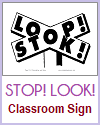 |
 |
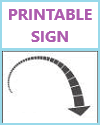 |
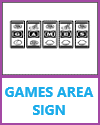 |
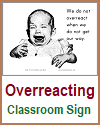 |
||||||
| Stop! Look! | Computer Lab Sign | Dashed Downward Arrow | Games Area Sign | We do not overreact when we do not get our way. |
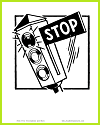 |
 |
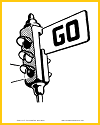 |
 |
 |
||||||
| Stop Sign Traffic Light | Large White Arrow | Go Sign Traffic Light | First Prize Ribbon | Science Sign with Atom |
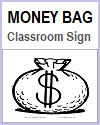 |
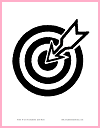 |
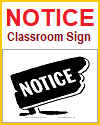 |
 |
|||||||
| Money Bag | Bull's-eye with Arrow | Notice Sign | Stationery Elements |
|
Proper signage in K-12 classrooms is important for several reasons, as it contributes to the overall effectiveness of the learning environment and the safety of students and staff. Here are key reasons why proper signage is essential in K-12 classrooms:
Safety: Signage plays a critical role in ensuring the safety of students and staff. Signs that indicate emergency exits, fire extinguisher locations, first-aid kits, and evacuation routes are crucial for responding to emergencies quickly and effectively. Organization: Signage helps maintain an organized and structured classroom environment. Clearly labeled areas for supplies, books, and materials can assist students in finding what they need and encourage a neat and orderly classroom. Visual Aids: Visual aids, such as educational posters, charts, and instructional signs, can enhance the learning experience. They provide valuable information, illustrations, and reference materials to support classroom instruction. Wayfinding: Proper signage assists students and visitors in finding their way around the school building. This is particularly important in larger schools or if students are new to the facility. Information Dissemination: Signage can be used to communicate important information, announcements, or upcoming events. Bulletin boards, whiteboards, and digital displays can relay messages to students and parents. Directional Guidance: In schools with multiple buildings or wings, directional signage helps students and visitors navigate the campus efficiently. Signs indicating classrooms, offices, restrooms, and common areas simplify the process. Accessibility: Properly designed signage, including braille and tactile signs, ensures accessibility for students with disabilities. It promotes inclusivity and compliance with accessibility regulations, such as the Americans with Disabilities Act (ADA). Classroom Management: Signs that establish rules, expectations, and routines can support classroom management. For example, visual cues for seating arrangements, classroom procedures, and behavior expectations help create a structured learning environment. Motivation and Inspiration: Inspirational quotes or educational-themed artwork displayed through signage can motivate and inspire students. Positive and encouraging messages can create a positive classroom atmosphere. Ownership and Personalization: Some teachers use signage to personalize their classrooms, reflecting their teaching style and creating a welcoming and engaging space. This can foster a sense of ownership and pride among students. Multilingual Support: In diverse classrooms, multilingual signage can facilitate communication with students and parents who speak different languages. Translated signs can help convey important information effectively. Security: Security-related signs, such as those indicating restricted areas or the presence of surveillance cameras, contribute to the overall safety and security of the school. Compliance: Schools must adhere to regulations and guidelines related to safety, accessibility, and educational standards. Proper signage helps ensure compliance with these requirements. Efficiency: Efficiently labeled storage areas, cabinets, and equipment can save time for both teachers and students. Well-organized classrooms with clear signage promote a smoother learning experience. Professionalism: Proper signage contributes to the professional appearance of the classroom and school. It reflects the commitment to creating an effective and inviting learning environment. In summary, proper signage in K-12 classrooms serves various essential purposes, including safety, organization, information dissemination, and educational support. It enhances the overall learning experience and contributes to the smooth operation of schools, ensuring that students and staff have the resources and guidance they need for a successful educational journey. |


